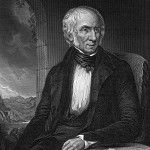The first person who compared painting and poetry with one another was a man of refined feeling, who became aware of a similar effect produced upon himself by both arts. He felt both represent what is absent as if it were present, and appearance as if it were reality; that both deceived, and that the deception of both is pleasing.
A second observer sought to penetrate below the surface of this pleasure, and discovered that in both it flowed from the same source. Beauty, the idea of which we first deduce from bodily objects, possesses universal laws, applicable to more things than one; to actions and to thoughts as well as to forms.
A third reflected upon the value and distribution of these universal laws, and noticed that some are more predominant in painting, others in poetry; that thus, in the latter case, poetry will help to explain and illustrate painting; in the former, painting will do the same for poetry.
The first was the amateur, the second the philosopher, the third the critic.
The first two could not easily make a wrong use of either their feelings or conclusions. On the other hand, the value of the critic’s observations mainly depends upon the correctness of their application to the individual case, and since for one clear-sighted critic there have always been fifty ingenious ones, it would have been a wonder if this application had always been applied with all that caution which is required to hold the balance equally between the two arts.
If Apelles and Protogenes, in their lost writings on painting, affirmed and illustrated its laws by the previously established rules of poetry, we may feel sure that they did it with that moderation and accuracy with which we now see, in the works of Aristotle, Cicero, Horace, and Quintilian, the principles and experience of painting applied to eloquence and poetry. It is the privilege of the ancients never in any matter to do too much or too little.
But in many points we moderns have imagined that we have advanced far beyond them, because we have changed their narrow lanes into highways, even tho the shorter and safer highways contract into footpaths as they lead through deserts.
The dazzling antithesis of the Greek Voltaire, “Painting is dumb poetry, and poetry is speaking painting,” can never have been found in any didactic work; it was an idea, amongst others, of Simonides, and the truth it contains is so evident that we feel compelled to overlook the indistinctness and error which accompany it.
And yet the ancients did not overlook them. They confined the expression of Simonides to the effect of either art, but at the same time forgot not to inculcate that, notwithstanding the complete similarity of this effect, the two were different, both in the objects which they imitated, and in their mode of imitation.
But, just as tho no such difference existed, many recent critics have drawn from this harmony of poetry and painting the most ill-digested conclusions. At one time they compress poetry into the narrower limits of painting; at another they allow painting to occupy the whole wide sphere of poetry. Everything, say they, that the one is entitled to should be conceded to the other; everything that pleases or displeases in the one is necessarily pleasing or displeasing in the other. Full of this idea, they give utterance in the most confident tone to the most shallow decisions; when, criticizing the works of a poet and painter upon the same subject, they set down as faults any divergences they may observe, laying the blame upon the one or the other accordingly as they may have more taste for poetry or for painting.
Indeed, this false criticism has misled in some degree the professors of art. It has produced the love of description in poetry, and of allegory in painting: while the critics strove to reduce poetry to a speaking painting, without properly knowing what it could and ought to paint; and painting to a dumb poem, without having considered in what degree it could express general ideas without alienating itself from its destiny, and degenerating into an arbitrary method of writing.
- 100 Screenwriting Ideas to Get You Writing - January 20, 2026
- 100 Winter Storm Writing Prompts - January 17, 2026
- 100 Haunted House Story Starters: Craft Your Scariest Tale Yet - January 10, 2026



